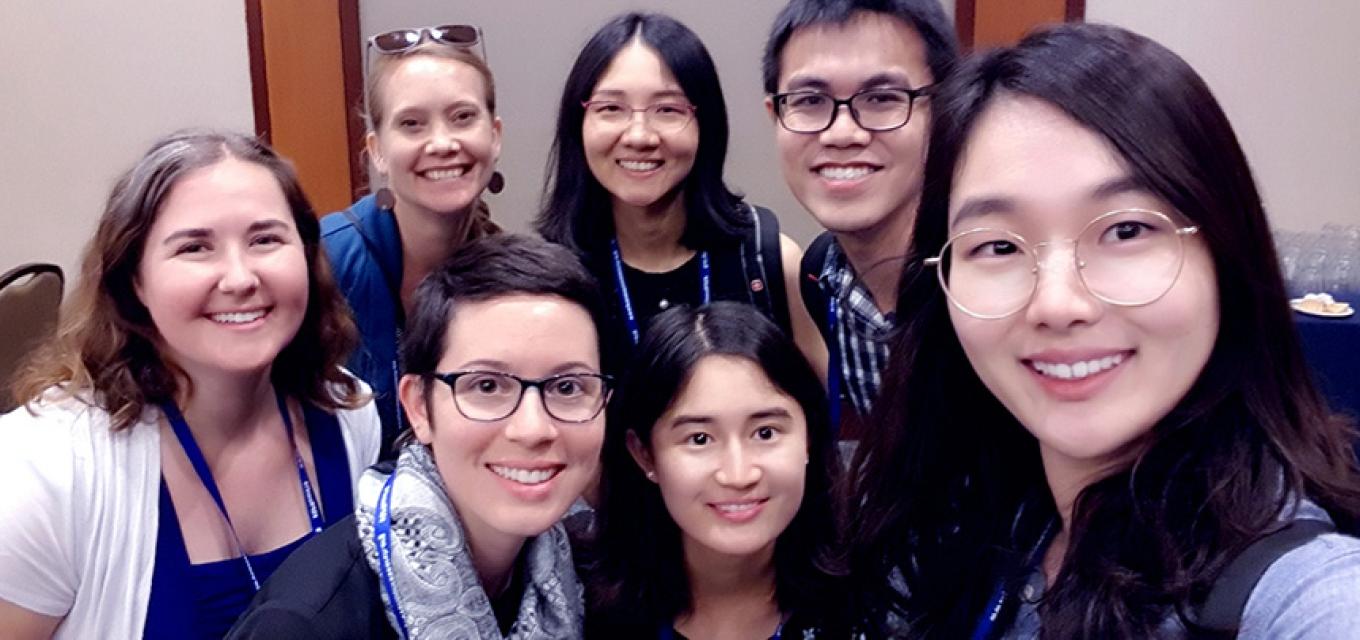Picture yourself a leader in Family Social Science

Family Social Science program overview
Are you driven to:
- improve the lives of families?
- understand how culture, community, and government systems affect families and create innovative solutions to improve these systems?
- investigate some of the most pressing challenges facing families and communities with cutting edge research?
An undergraduate, master's, or doctoral degree in family social science will prepare you to use research to discover and apply knowledge, build communication skills, and develop as a lifelong learner and effective leader.
Our faculty are mentors, renowned researchers, and committed teachers who are focused on your success.
The Department of Family Social Science is a collaborative and supportive community devoted to family research, theory, therapy, and education. We partner and consult with families, communities, and organizations to address psychological, cultural, social, and economic issues affecting families locally, nationally, and globally.
Undergraduate programs
Bachelor of Science (BS)
If you have a passion for helping people, this multi-disciplinary undergraduate major will develop your counseling skills and prepare you to understand human relationships across the lifespan. Your coursework will include internships, directed research, or fieldwork.
Undergraduate minor in family social science
Enhance your major with an undergraduate minor that will give you a fundamental understanding of parents, children, and couples from multiple social science perspectives. You have a choice of four options, including coursework that will prepare you for a for a career in family financial counseling as an Accredited Financial Counselor.
Graduate programs
MA in family social science
A Master's in family social science will prepare you for an advanced degree in family social science or a related field. The department also offers a combined MA/PhD admission if you do not already have a master's degree.
PhD in family social science
You will be prepared to lead in the profession with a broad foundation of expertise in theory, research, and practice. Choose from two specializations:
Parent and family education programs
These online programs prepare professionals to support, educate and build community for today’s parents and families as they navigate today’s changing world. Unsure which program is right for you? Learn more about all of our program track options on the parent and family education programs page.
Master's of education in family education with parent and family education license
This program is a graduate-level post-baccalaureate program approved by the State of Minnesota to prepare you for licensure as a teacher in Early Childhood Family Education programs.
Parent and family education license
This will prepare you to teach parent education in Minnesota's statewide Early Childhood Family Education program.
Master's of education in family education
This online advanced practitioner degree will develop your competencies to work with individuals and families to enhance family life.
Parent education certificate
This credential will prepare you to plan, coordinate, and teach parent education programs and services. This does not meet eligibility requirements for working in Minnesota’s Early Childhood Family Education program.
Graduate minors and continuing education
Graduate minor in family social science
Graduate-level minors are offered at both the master's and PhD levels. Learn social science methods to deepen your understanding of parents, children, and couples in today's complex family systems. Your coursework will include family theory, research methods, and core family content.
PhD minor in prevention science
This program will prepare you to promote healthy behaviors in populations across the lifespan. You will learn about systematic efforts to reduce the incidence of unhealthy or maladaptive behaviors, how to design and evaluate interventions and use this knowledge strategically to improve programs and advocate for change.
Ambiguous loss certificate
This online professional development course will prepare you to become proficient in understanding and applying ambiguous loss theory and includes a professional development Certificate of Completion and 15 CEUs from the University of Minnesota.